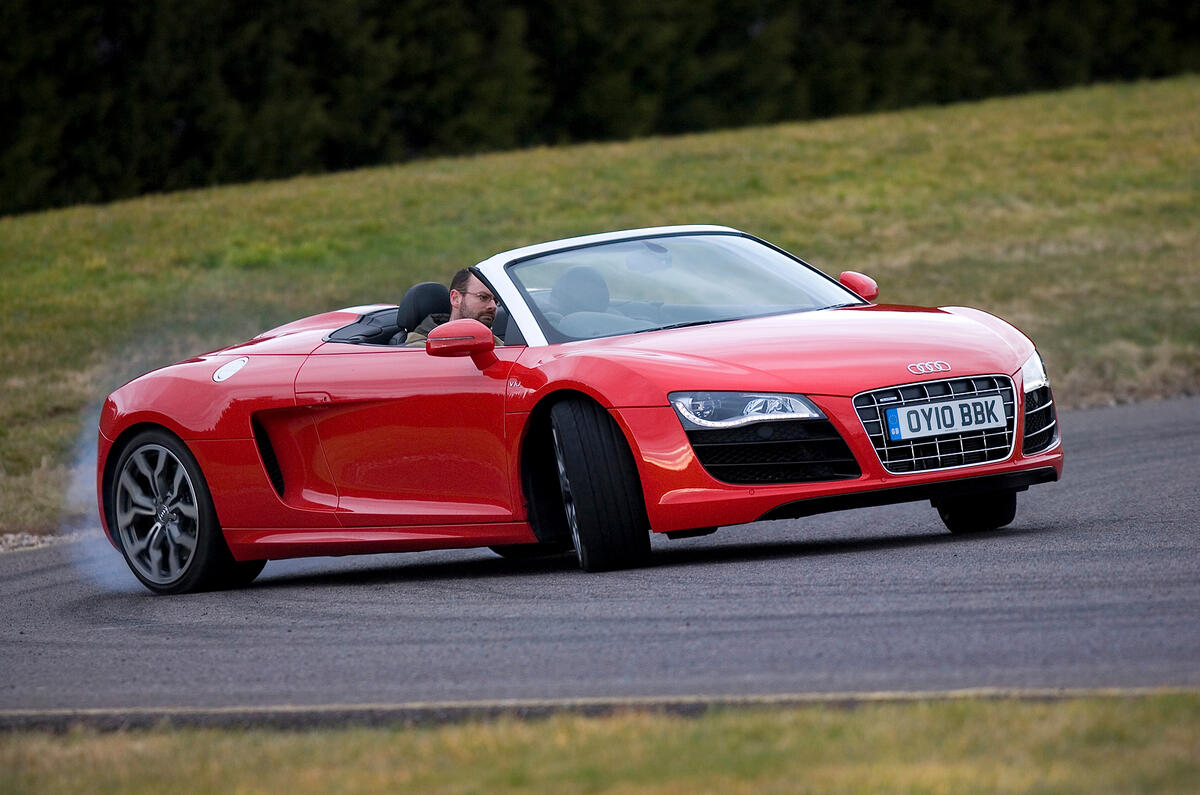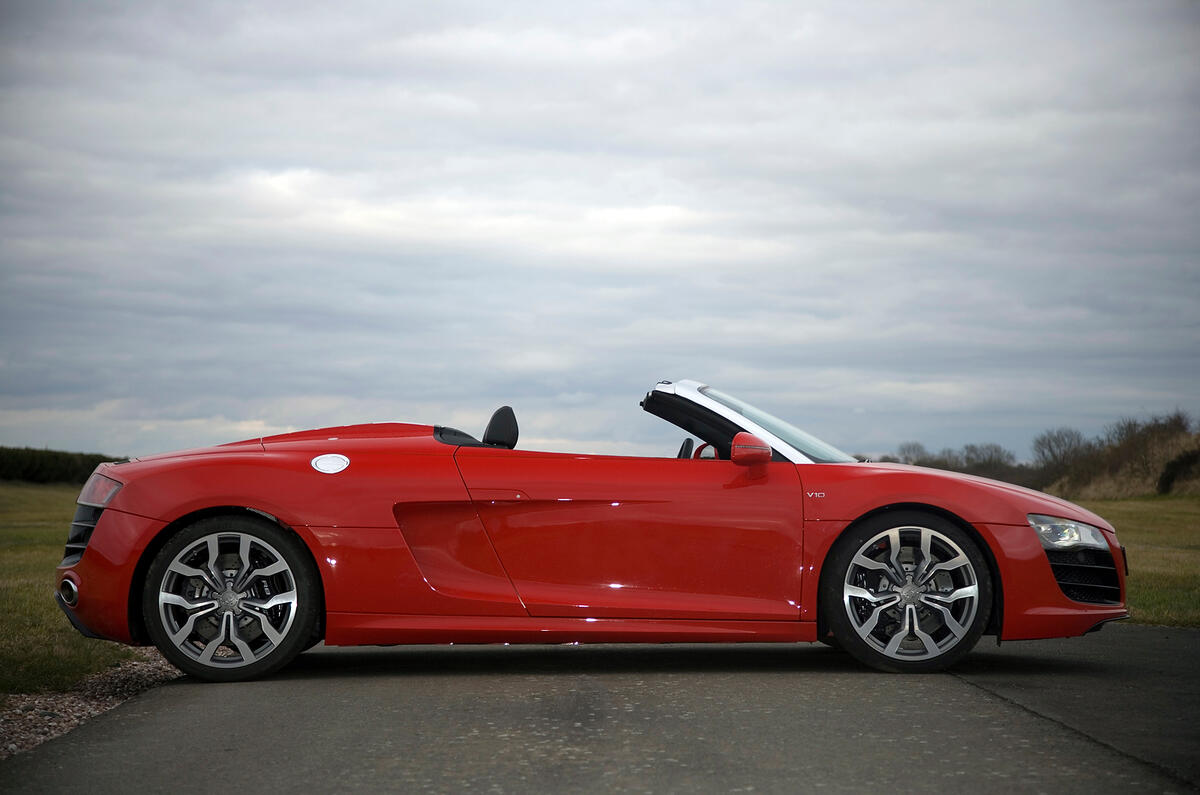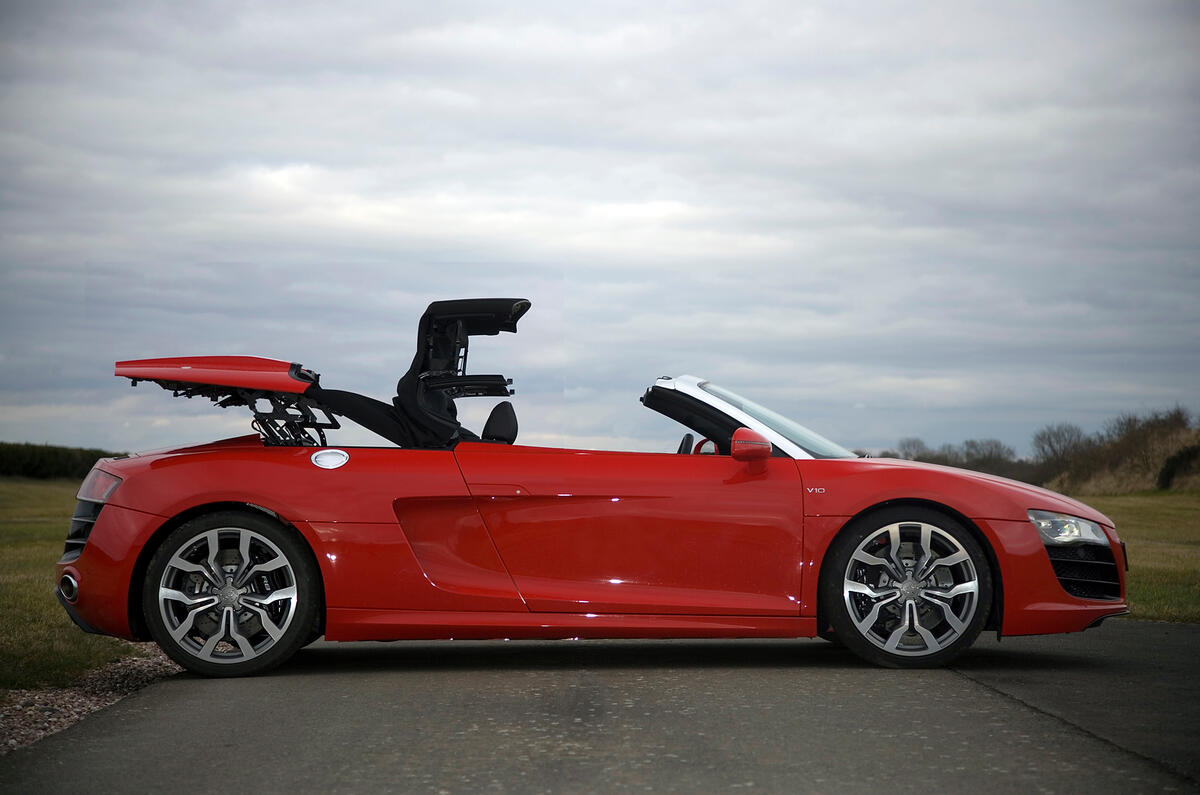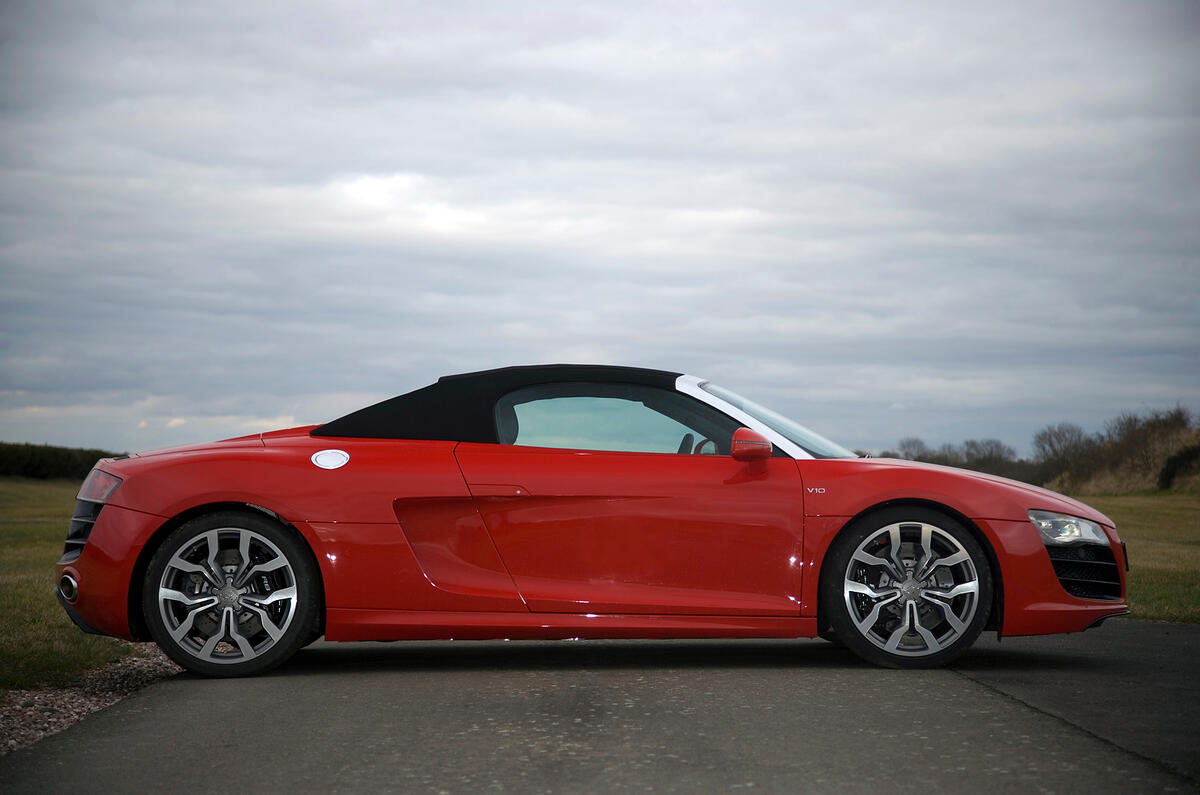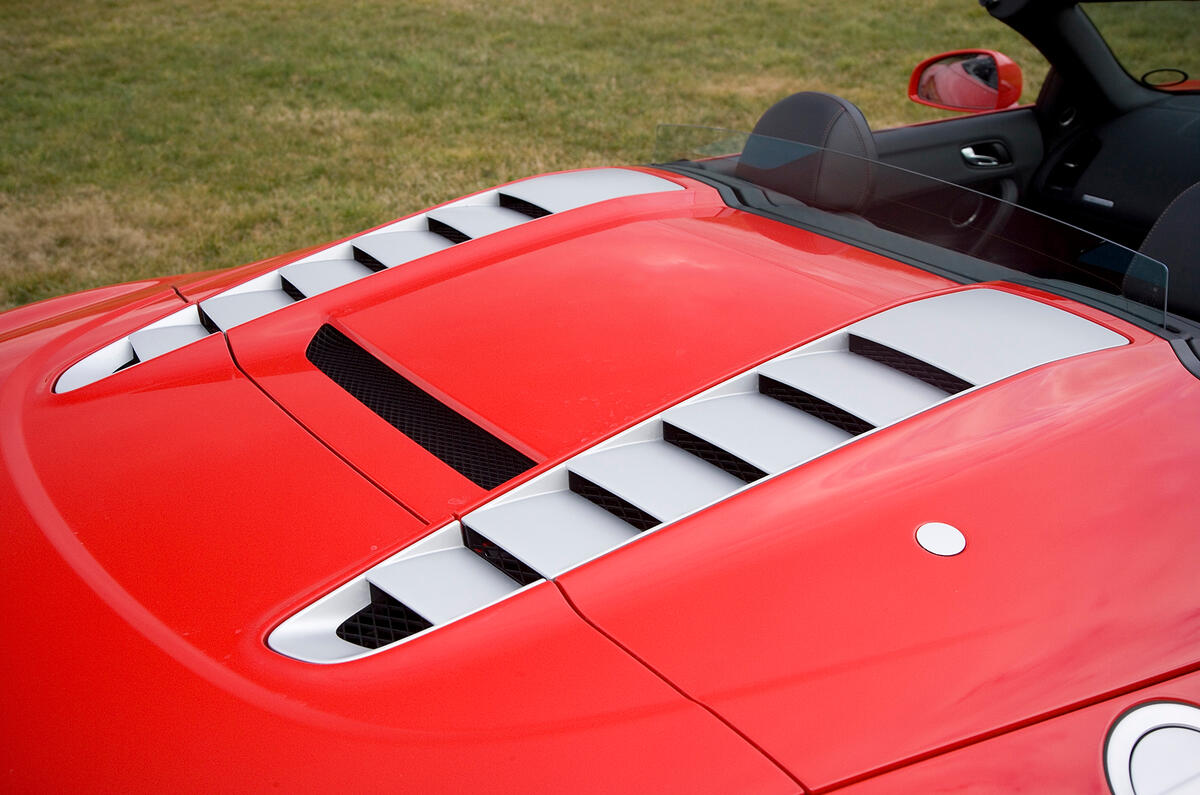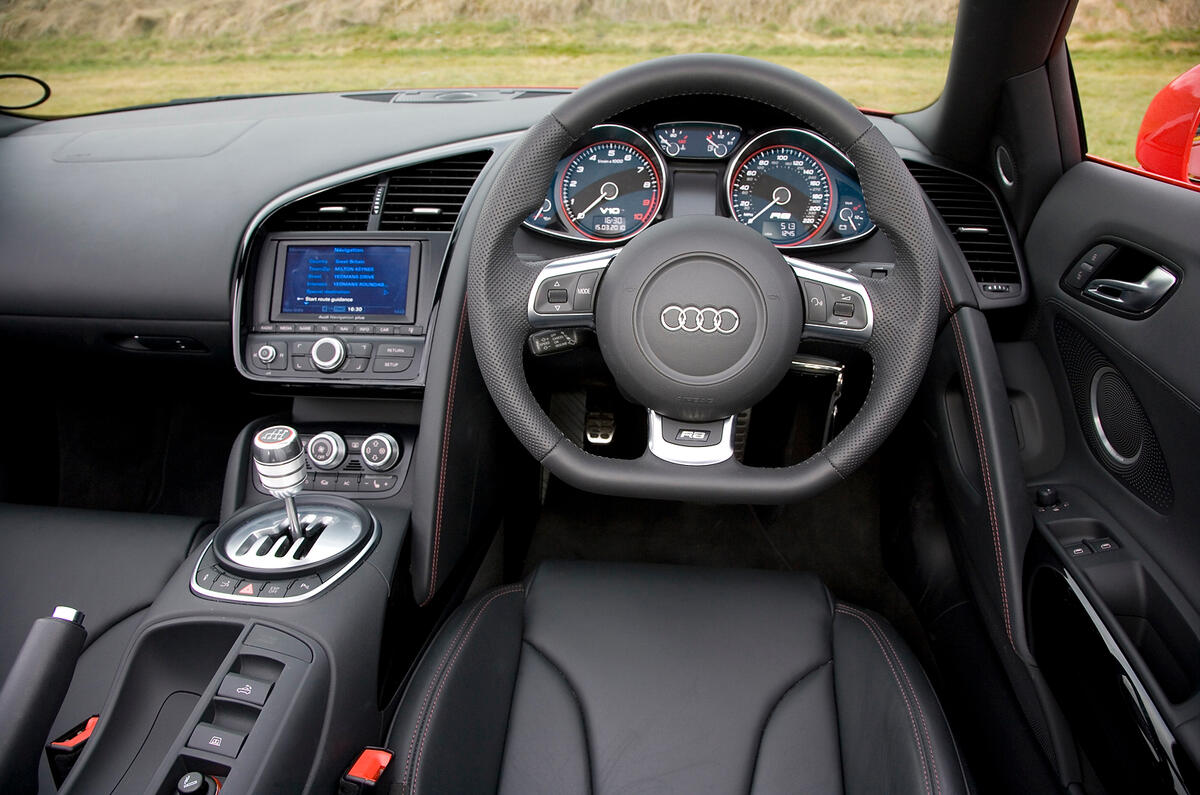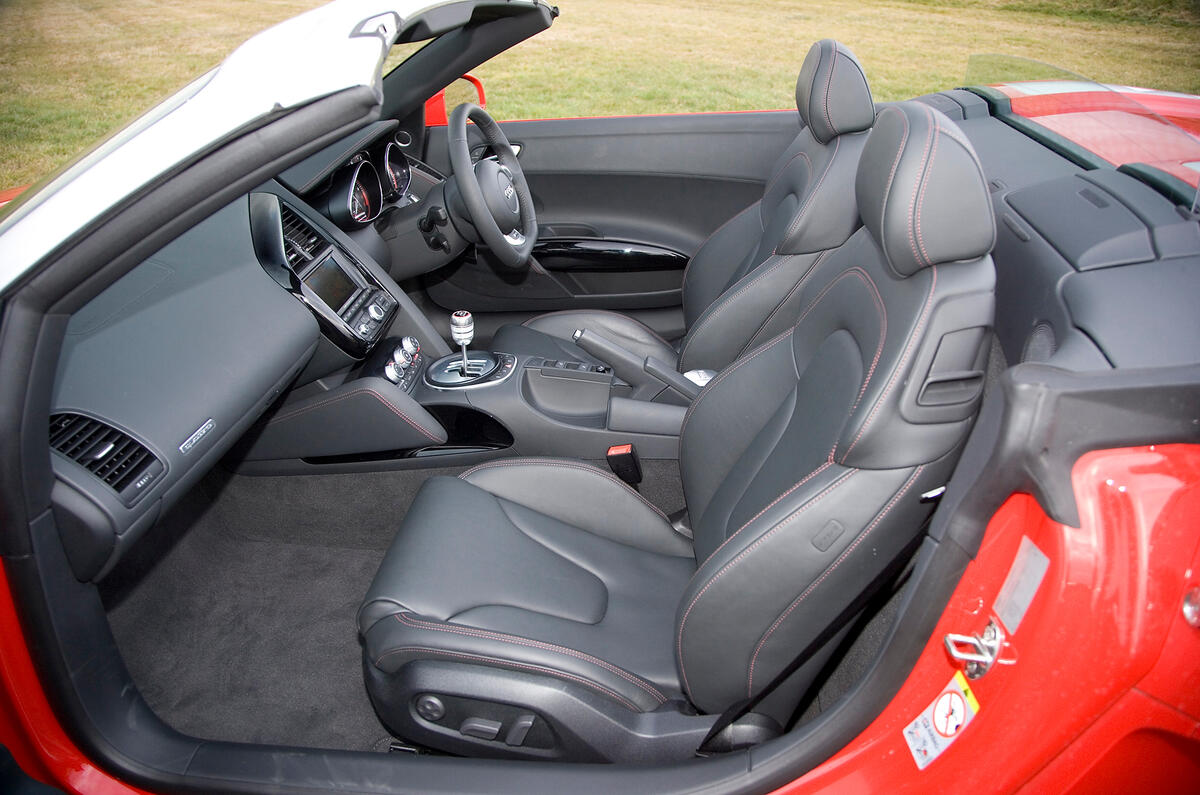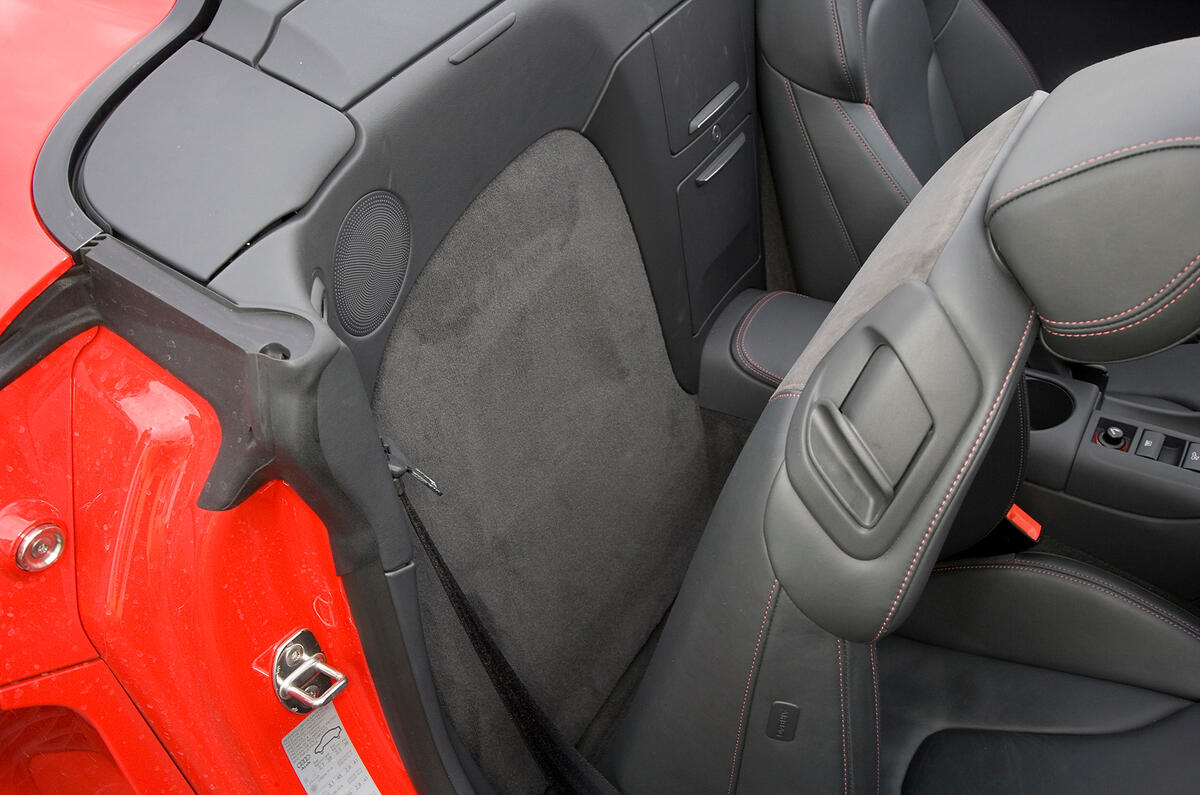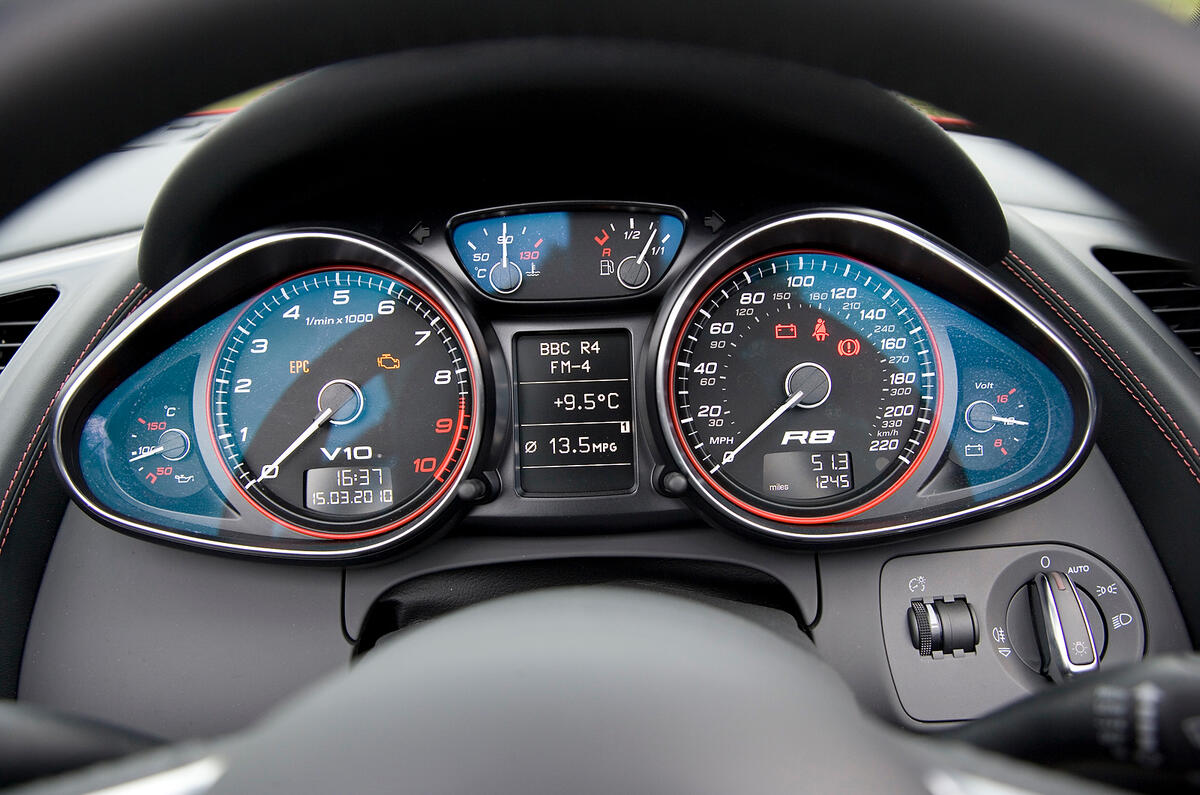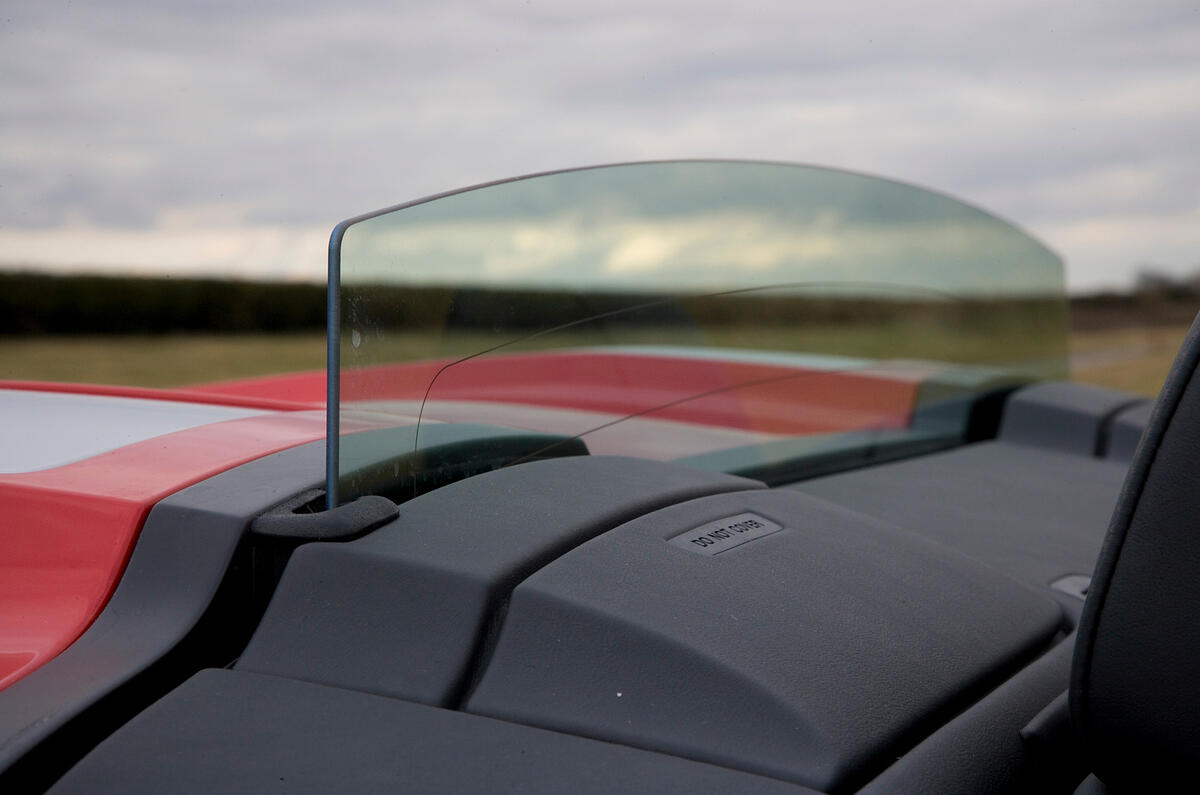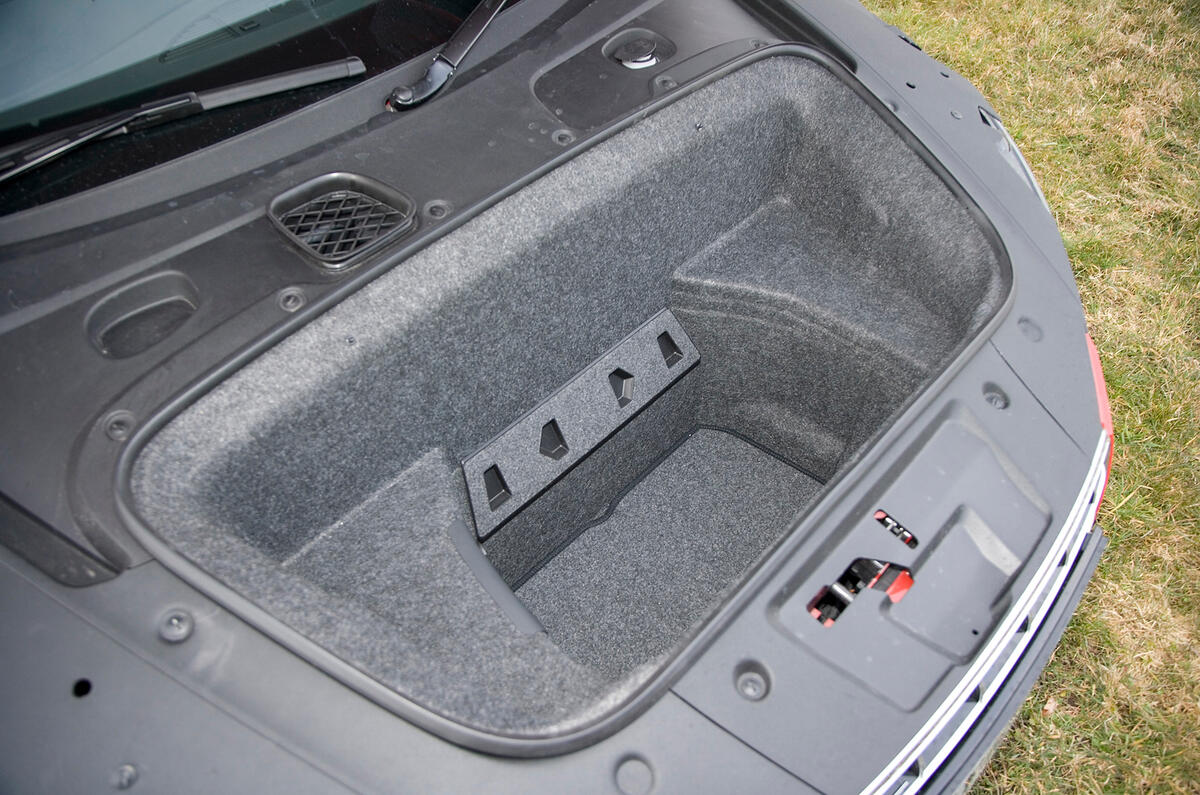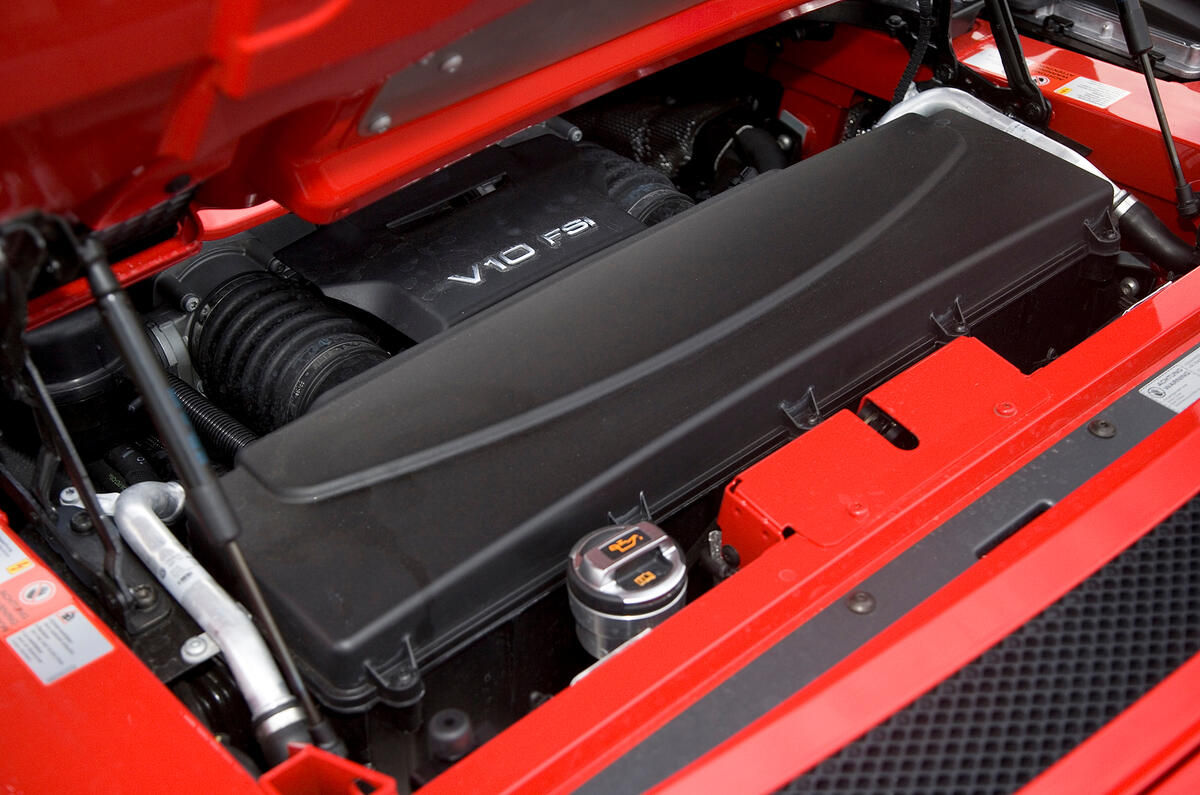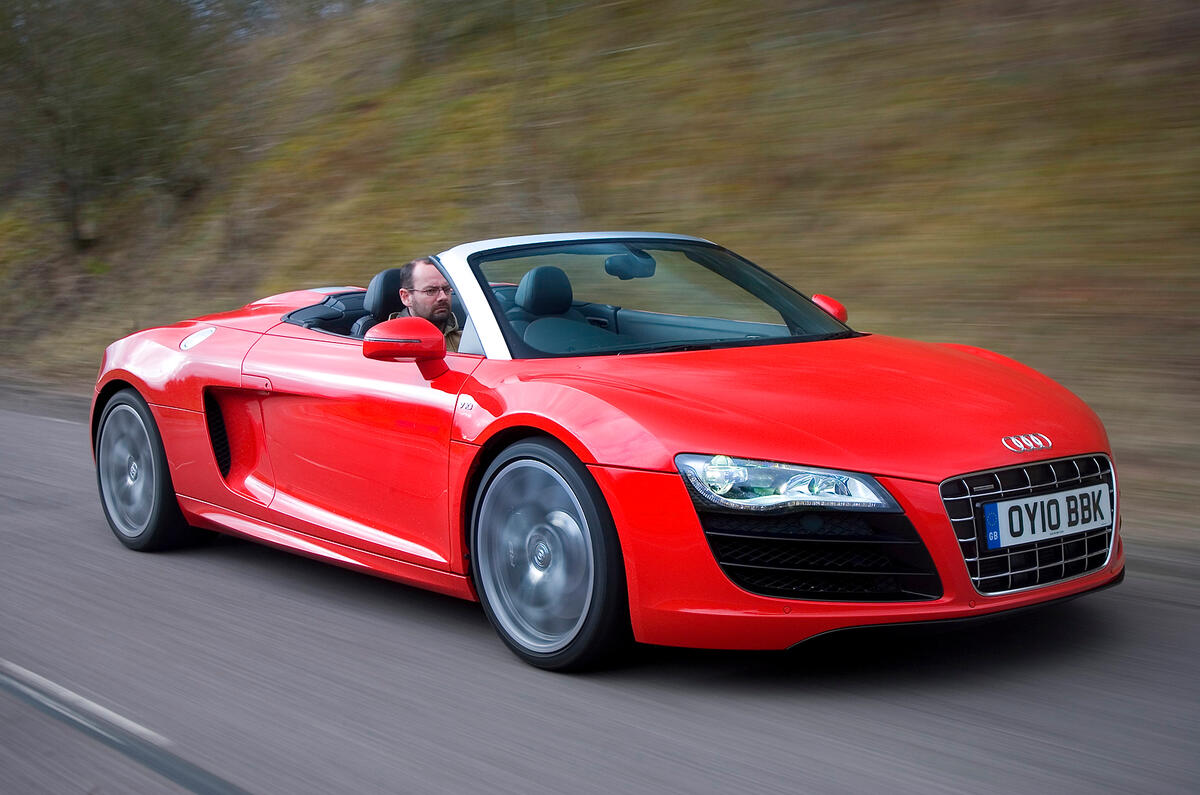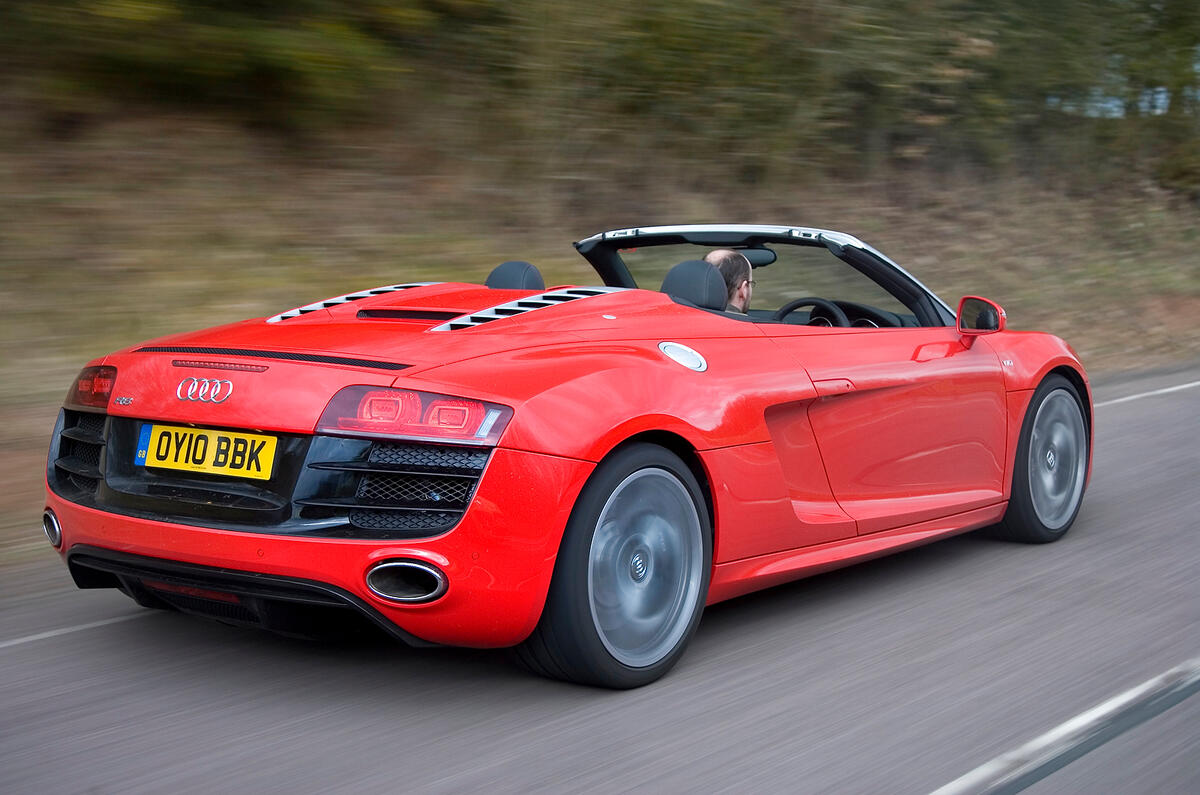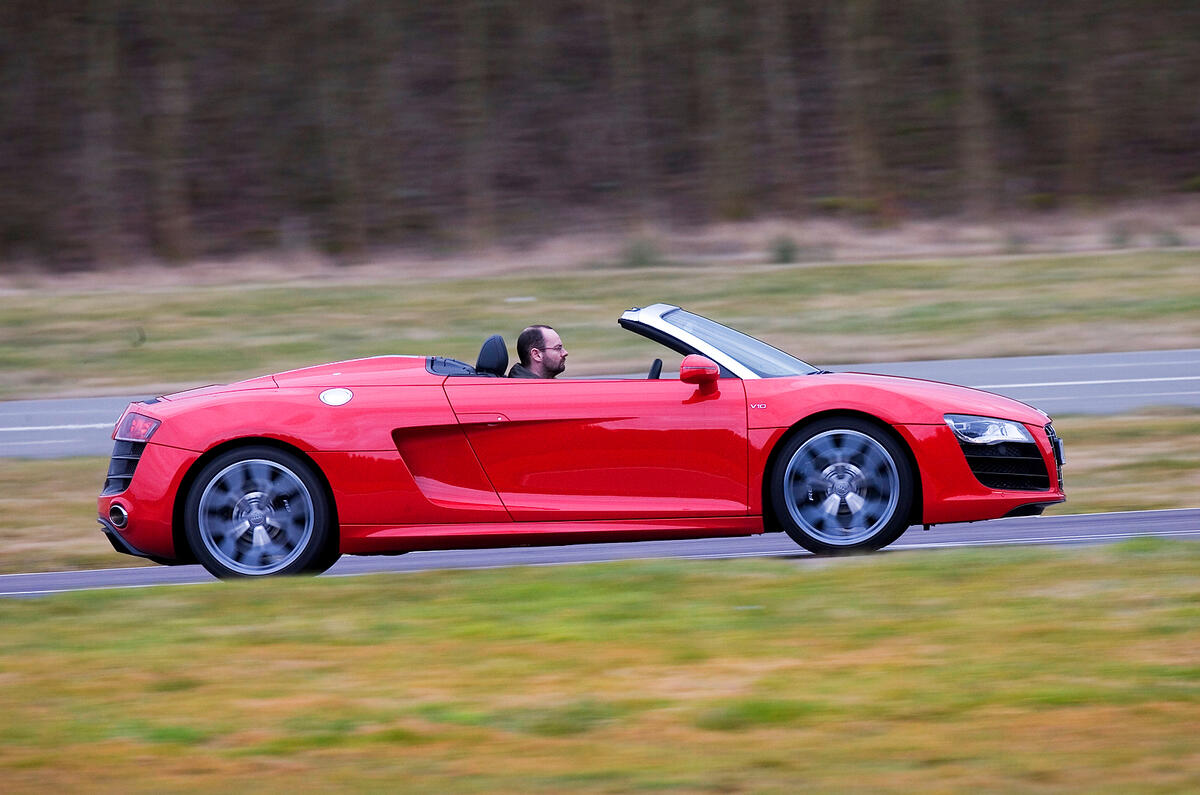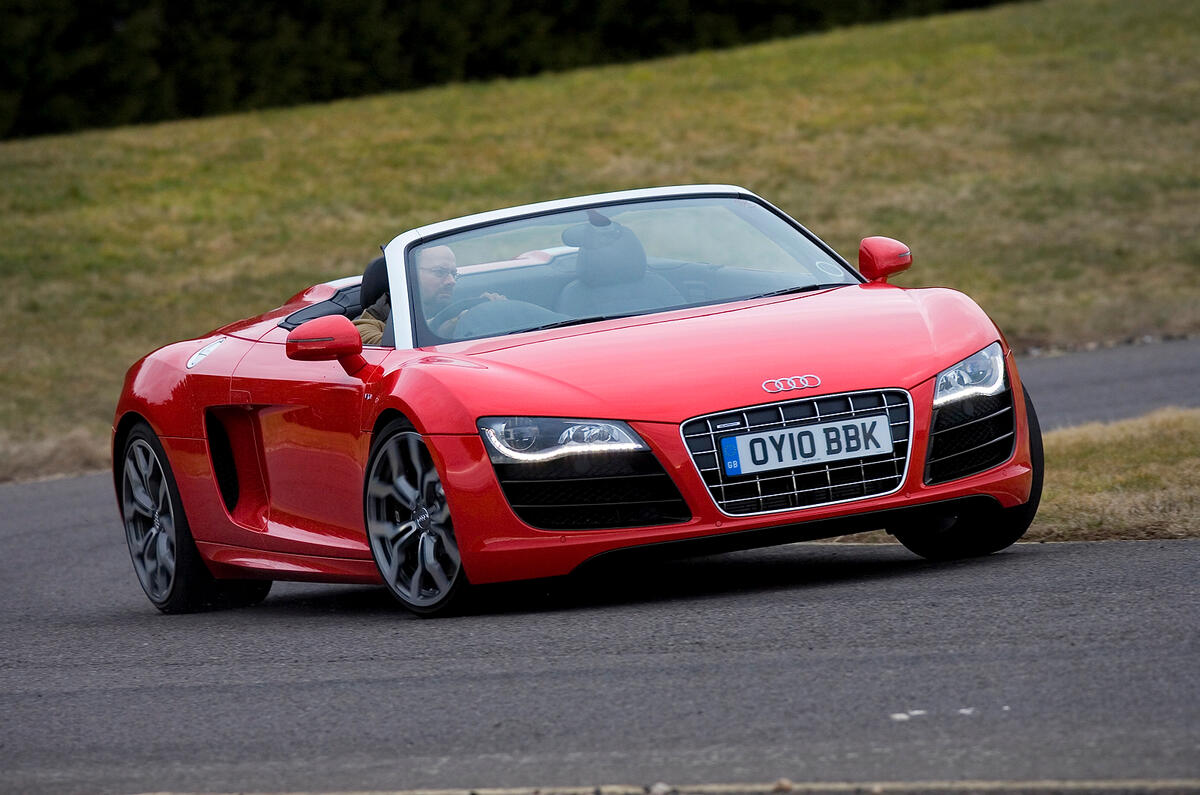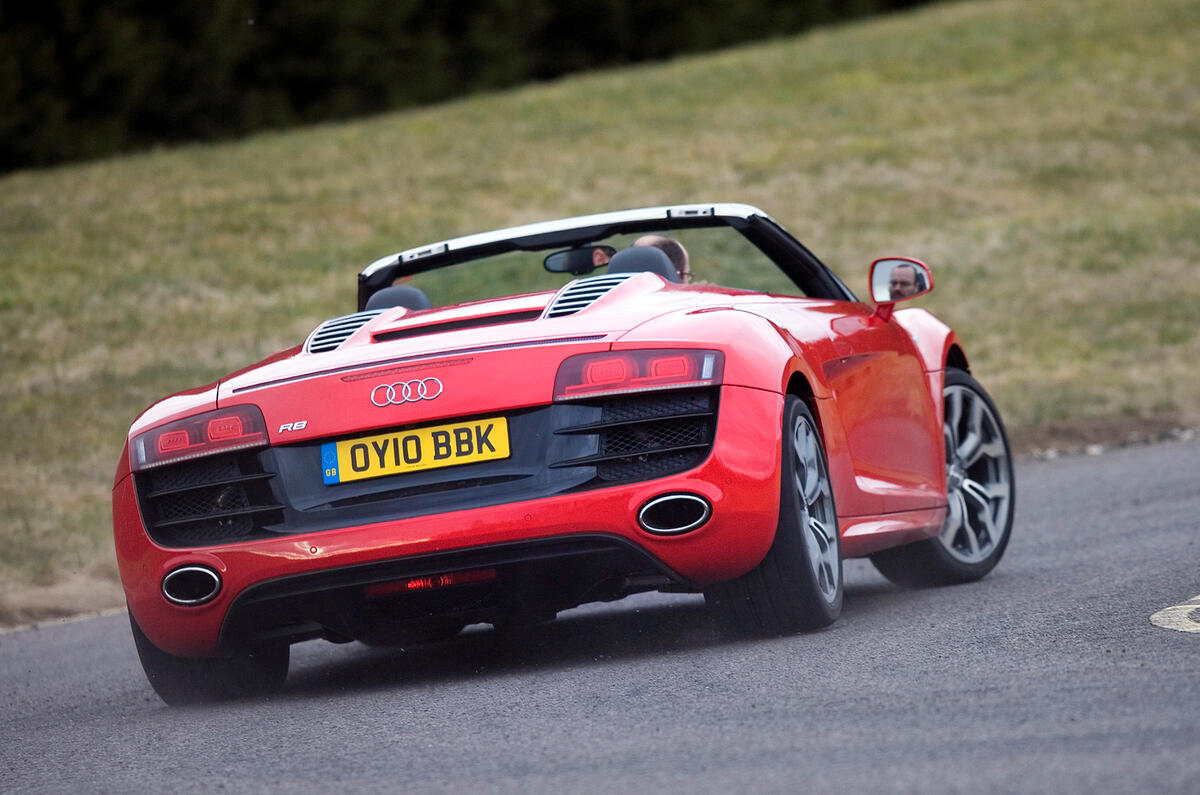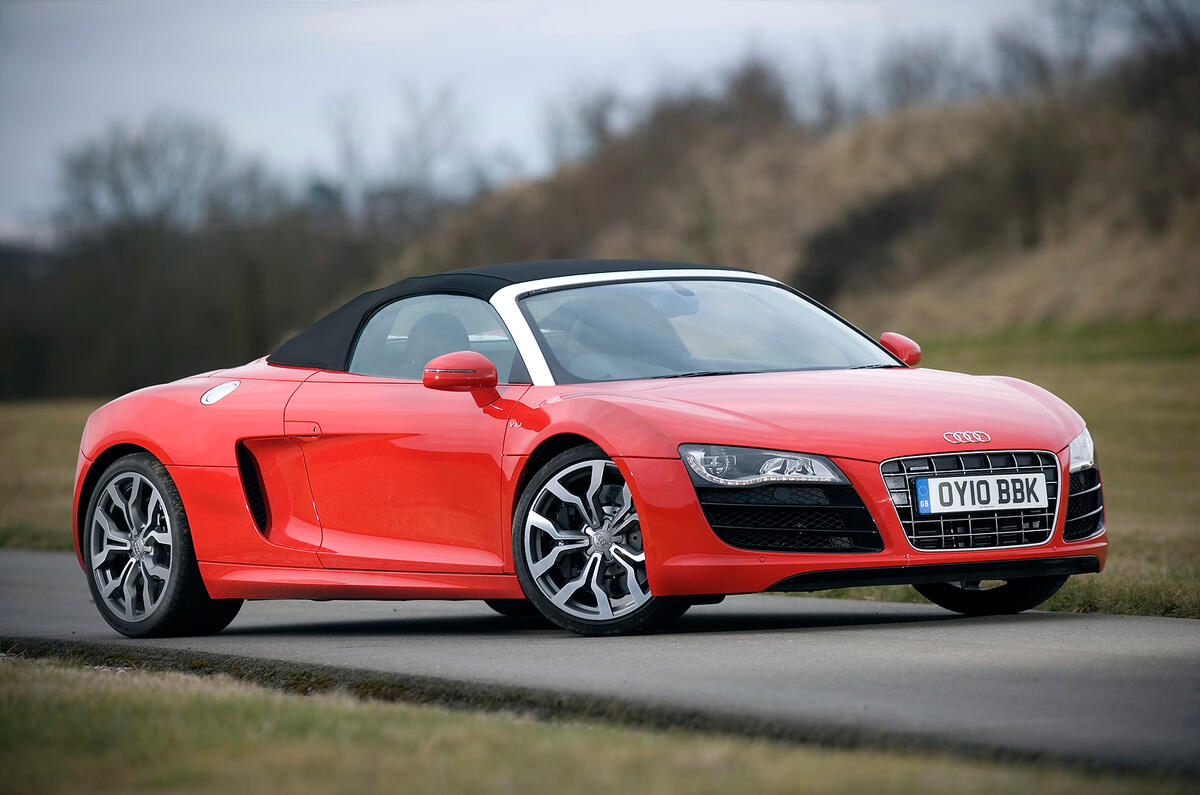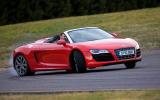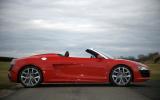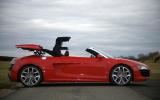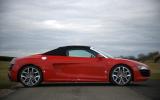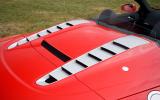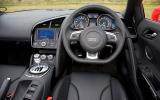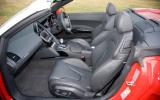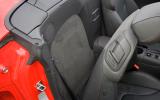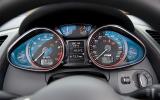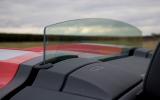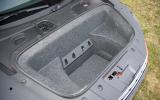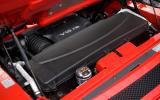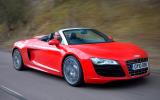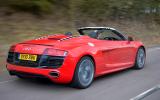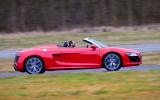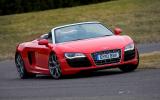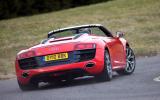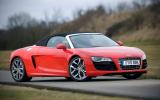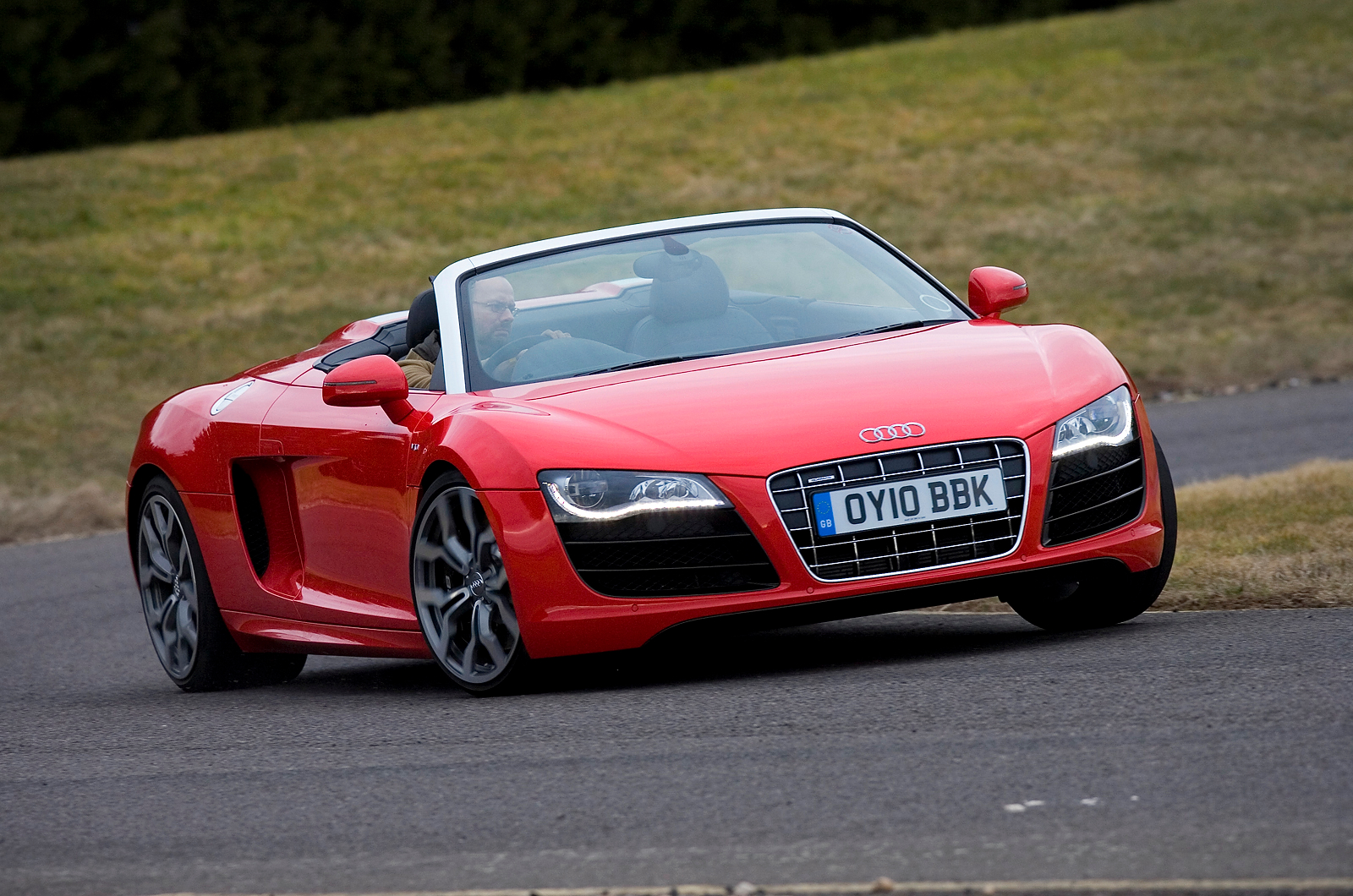It’s only to be expected that the R8 Spyder is a tad slower than its coupé sibling, but don’t think that with 518bhp it is in any way what you’d call deficient in performance. And despite weighing 1785kg full of fuel, the Audi isn't the heaviest mid-engined exotic.
The 0-60mph acceleration time of 4.1sec we recorded is in line with Audi’s claims. Were the R8 Spyder a slightly different beast — with either launch control, the inclination to spin its wheels from rest in the dry, or a first gear that reached 60mph — we’ve no doubt its power and the delivery of it would allow it to reach the benchmark comfortably in the threes, as a Porsche 911 Turbo does.
The V10’s ample delivery is wonderfully flat and linear. Slot fifth gear below 20mph, floor the throttle and no more than 30 seconds later you’ll be a mile up the track, having just passed 150mph.
Each 20mph increment will have passed in around four seconds. Shift to fourth gear and 20mph increments take three seconds, in third gear they take two and a bit, and in second gear less than two.
At speed the hood proves well insulated, to the extent that it’s good for a claimed 195mph and, barring some turbulence from towards the rear of the roof, the R8 Spyder is rarely louder than the coupé.
The benefit, of course, is that with the hood down there is all the more opportunity to hear the V10’s vocal range. It’s not an engine whose complex character changes significantly with revs or throttle, but when all is said and done it does have 10 cylinders, very large exhausts and the capacity to rev to the other side of 8000rpm.
That, aurally, is never going to be a bad thing, and the ability to listen to it in the open air marks the R8 Spyder out as something special.
In our experience, when the V10 engine is new it has a whip-crack response that is excellent when accelerating, but it can make it hard to match engine revs to downshifts. We’ve found it becomes slightly more predictable over time as the engine loosens, developing into what is one of the most pleasingly responsive powerplants currently in production.
Less convincing are the R8’s brakes. They will stop the car quickly from high speed a number of times and are very unlikely to cause consternation on the road, but they run out of answers after relatively few laps of a track, even in sub-10deg C temperatures.
Those intending to take their R8 Spyder on a track day would be wise to invest in the optional ceramic brakes.



